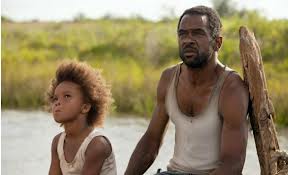"Beasts of the Southern Wild": An Affective Review
 I have a confession: I didn’t like Beasts of the Southern Wild. And I don’t fully understand why. Don’t get me wrong; there were a number of wonderful facets to the movie. The beautifully textured cinematography and score were, at times, literally breathtaking. Quvenzhané Wallis’s portrayal of Hushpuppy was both perfectly quiet and understatedly fierce (she is now the youngest Academy Award Best Actress nominee ever). The film bravely delved into uncomfortable depths of the contradictory and conflicted relationship one can have with a parent, especially when confronted with the inevitable loss of that parent – in this case, Hushpuppy’s simultaneous terror of and unyielding love for her father, Wink. But, in spite of all these positives, something just didn’t feel right.
I have a confession: I didn’t like Beasts of the Southern Wild. And I don’t fully understand why. Don’t get me wrong; there were a number of wonderful facets to the movie. The beautifully textured cinematography and score were, at times, literally breathtaking. Quvenzhané Wallis’s portrayal of Hushpuppy was both perfectly quiet and understatedly fierce (she is now the youngest Academy Award Best Actress nominee ever). The film bravely delved into uncomfortable depths of the contradictory and conflicted relationship one can have with a parent, especially when confronted with the inevitable loss of that parent – in this case, Hushpuppy’s simultaneous terror of and unyielding love for her father, Wink. But, in spite of all these positives, something just didn’t feel right.
My affective response to the movie was similar to feelings I get when looking at certain photographs by Diane Arbus or Robert Mapplethorpe – uncomfortable at whether what is being captured/portrayed is exploitative or respectful. Yes, their art is meant to make the viewer uneasy, but I can never decide if it is for the right reasons. Moreover, Beasts of the Southern Wild felt like ethnography to me. In this regard, it seemed to devolve into a kind of poverty porn akin to Kathleen Stewart’s A Space on the Side of the Road – an ethnographic field study with noble intentions attempting to redefine the spaces in which poor, rural communities exist in an American framework, but in my opinion, just keeping those same communities positioned as the strange, freaky, idiosyncratic Other. What’s worse here is that Beasts of the Southern Wild plays out as a kind of poverty porn put into black face, with no actual mention of blackness or race as a presence. In other words, blackness is always visually present on screen, but is never consciously dealt with as subject matter. So, blackness is physical matter in the film, but does blackness matter?
 I realize I am asking more questions than I am answering but that is exactly what the film did for me. What does Beasts of the Southern Wild really say to its audience? Does it create a fantasy world where differences are no longer marked and/or remarked upon (at least from within the same socio-economic group)? Or does it solidify a sense that blackness and race can only be welcomed and celebrated (in Hollywood and everywhere else) when visually present – enough to be included – but mute(d)?
I realize I am asking more questions than I am answering but that is exactly what the film did for me. What does Beasts of the Southern Wild really say to its audience? Does it create a fantasy world where differences are no longer marked and/or remarked upon (at least from within the same socio-economic group)? Or does it solidify a sense that blackness and race can only be welcomed and celebrated (in Hollywood and everywhere else) when visually present – enough to be included – but mute(d)?
All I know is that Beasts of the Southern Wild pointed me toward the things that don’t feel right. I still don’t like the film. But it did show me that the things that don’t feel right are exactly the right things to be looking to. In a movie. In society. In our world.




20 Comments